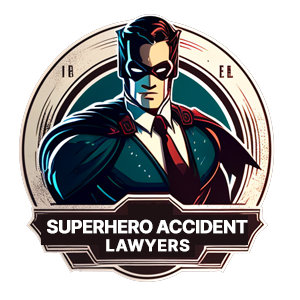Werner Enterprises, a truckload carrier company, has suffered a significant setback in its appeal against a jury verdict that has accumulated over $100 million in judgment charges, resulting from a fatal 2014 accident that caused the death of a child and left family members seriously injured.
Werner expressed its intentions to appeal further. Nathan Meisgeier, executive vice president and chief legal officer, stated in a prepared comment, “Werner is disappointed with the court of appeals’ decision, and we plan to seek relief with the Texas Supreme Court.”
Last week, Texas’ 14th Court of Appeals, in a divided en banc decision, upheld the judgment passed in Harris County in mid-May 2018. Initially valued at $92 million, the judgment amount has since inflated due to accumulated interest.
Following an unconventional move in 2021 to bypass the usual three-judge appeals panel, the appeal was directly heard en banc at the 14th Court of Appeals.
Werner, according to its annual 10-K report submitted to the Securities and Exchange Commission earlier this year, has already faced financial impacts from the verdict. However, the report clarifies that the company is not responsible for the full judgment amount should it survive further appeals.
Werner declared in the 10-K report that the “maximum liability” for the accident is $10 million, plus pre- and post-judgment interest. The company has already reported liabilities of $34.1 million and $28.8 million at the end of 2022 and 2021, respectively. In the report, Werner also mentioned recording a $79.2 million receivable from the insurance company and a corresponding liability of the same amount.
On the accident day, post-Christmas 2014, Interstate 20 near Odessa, Texas, was impacted by freezing rain and black ice. A vehicle carrying a woman, Jennifer Blake, and her three children, driven by Trey Salinas, collided head-on with a Werner truck driven by Shiraz Ali, another defendant in the case along with Werner (NASDAQ: WERN).
One of Blake’s children was killed in the accident, another was rendered quadriplegic, and a third child sustained substantial, yet non-life-threatening injuries. Blake herself suffered physical injuries and mild brain damage.
The lower court found Werner and Ali to be largely liable, though some blame was also allocated to Salinas.
The Court of Appeals’ decision to uphold the lower court ruling was not unanimously agreed upon by the complete en banc panel of nine judges. There were dissents on certain findings, even from judges who concurred with other aspects of the decision to uphold the lower court judgment.
Werner’s primary contention in the appeal was a series of “relevant facts” that were particularly damaging to the company at the lower court level. These included the presence of black ice on the highway, Ali’s failure to sufficiently reduce his speed to adjust to the weather conditions, his lack of a CB radio to receive potential warnings from other drivers about the hazardous conditions, highway officers’ observation of Ali’s vehicle traveling at an unsafe speed given the conditions, and the assertion that the injuries from the collision with Salinas’ car would have been less severe if the Werner truck had been traveling at a lower speed.
The lower court jury assigned 70% of the blame to Werner, 14% directly to Ali, and 16% to Salinas.
Werner’s arguments regarding its liability were rooted in Texas law’s approach to holding employers responsible for their employees’ actions. This argument formed the basis of one of the dissents, submitted by Judge Randy Wilson.
The full court unanimously agreed that Werner was negligent in assigning Ali — who had only been out of driver school for less than a week — to the road and subsequently managing him.
The judges wrote, “The risk was astonishingly high that a newly trained 18-wheeler driver who was not trained to drive in winter weather would cause serious death or injury if confronted with a traffic scenario requiring quick reactions while traveling at approximately 50 miles per hour on a Texas highway with black ice, freezing rain and freezing temperatures during a National Weather Service storm warning.”
They pointed out that Ali had the “second-lowest possible” evaluation score and was tasked with a “high-pressure (just in time) delivery.”
In conclusion, the judges stated that “Werner should have reasonably anticipated that it created unreasonable dangers for other travelers who were traveling in treacherous weather conditions.”
They expected Werner to have understood the “foreseeability” of its actions, saying, “We do not believe it is too much to ask of Werner to refrain its drivers from driving unreasonably fast.”
In a “balancing analysis,” the court considered various factors. It concluded that the risk, likelihood of injury, and foreseeability were all very high, considering the weather, the Werner truck’s high speed, and the driver’s lack of experience.
These factors were partially offset by the legal considerations of the “magnitude of burden,” the “social utility of the actor’s conduct,” and the “consequence of placing the burden on the defendant,” all of which were brought up by Werner as defenses.
After balancing these elements, the judges declared, “impose[s] a duty on trucking companies to (1) refrain from preventing their drivers from accessing information about foreseeably dangerous weather conditions while they are driving through those conditions and (2) refrain from assigning inexperienced or low-scoring drivers to high-pressure deliveries, such as just in time runs.”
